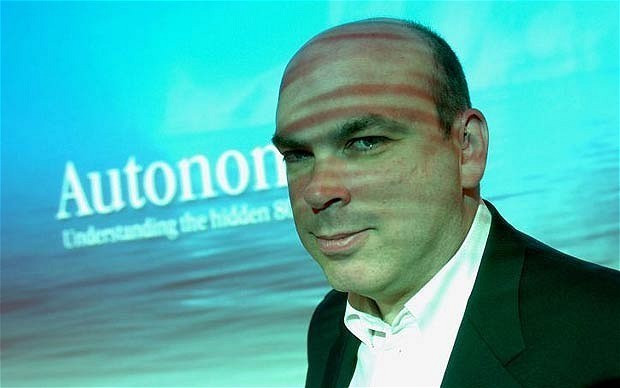UK Tech Guru Mike Lynch Splashes out £6 Million to Fund Best of British New Media

The UK's best-known technology entrepreneur is making a comeback after raising a £6.3 million war chest to fast-track the development of some of the country's most promising companies.
Mike Lynch is bankrolling what he describes as some of the "brightest of the technies" to unearth the future stars among the ranks of British technology start-ups.
In his new venture, Invoke Capital, Lynch plans to turn the traditional investment model on its head, with forward-thinking small firms getting financial backing to buy big companies, rather than the other way around.
The tech entrepreneur made £500 million from the sale of Autonomy, his software company to Hewlett Packard.
He has raised funds for his new company, the Invoke Capital Partners fund over the past year from private equity funds and wealthy individuals.
The move comes in spite of an accounting scandal at Autonomy in November after Hewlett-Packard, which paid £6.5 billion in 2011 for the company that Dr Lynch founded, wrote down its value by £3.1 billion and accused Autonomy of inflating the company's worth.
The deal is currently being scrutinised by financial regulators in Britain and the United States.
In his first interview about Invoke, Lynch told the Sunday Times that he plans to foster a new generation of British success stories. "The theory goes that if you build the world's best mousetrap, then the world will come to your door. But you need a giant neon sign above the door because the world doesn't work like that."
Lynch has also backed Featurespace, a software company that can detect when an online user's behaviour changes. He appointed Martina King, ex-head of Yahoo! Europe, as its chief executive.
Gambling company Betfair uses Featurespace to spot fraudulent activity.
Lynch formed his first company in the 1980s, with a £2,000 loan from the manager of a band, producing audio products for the recording industry.
Later he specialised in automatic number plate, fingerprint and facial recognition software for the police.
In 1991 he set up Cambridge Neurodynamics, which specialised in computer-based fingerprint recognition.
A profile in the Sunday Times suggested that Lynch was the nearest thing that Britain has to Bill Gates.
© Copyright IBTimes 2025. All rights reserved.






















